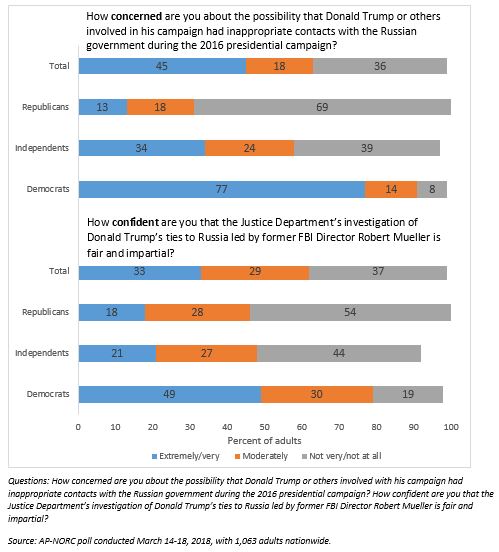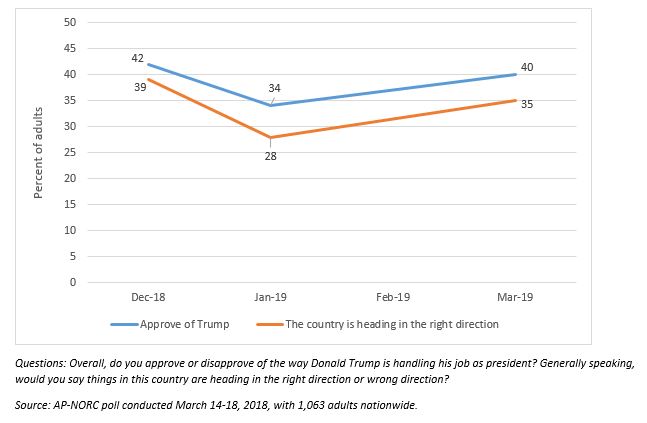
Most Americans are at least moderately confident in the impartiality of the Justice Department’s investigation of possible ties between the Trump campaign and Russia. Nearly 6 in 10 think Trump has attempted to impede or obstruct that investigation.
Asked for their own assessment of Trump’s ties with Russia, 37 percent of adults say he has done something illegal, and another 32 percent think he’s done something unethical, but not illegal. Twenty-seven percent do not think the president has done anything wrong.
The public continues to view the investigation led by Robert Mueller into Trump and his 2016 presidential campaign through a partisan lens. Ninety percent of Democrats say Trump attempted to impede or obstruct the investigation, while only 24 percent of Republicans agree.
There are large partisan differences in concern about the Trump campaign’s possible ties to Russia and confidence that the investigation will be fair and impartial.

Overall, the public is divided about the prospect of impeachment. If it turns out that Trump obstructed the investigation into his campaign’s ties with Russia, 52 percent say Congress should take steps to remove him from office, while 46 percent say it should not.
Forty percent of the public approve of how Trump is handling his job and 58 percent disapprove. The president’s approval rating took a hit in January during the federal government shutdown, but now has rebounded. Similarly, the public’s view of the direction of the country dipped during the shutdown and has nearly recovered.
Dips in presidential approval and the direction of the country during the government shutdown have mostly reversed.

The nationwide poll was conducted March 14-18, 2019, using the AmeriSpeak® Panel, the probability-based panel of NORC at the University of Chicago. Online and telephone interviews using landlines and cell phones were conducted with 1,063 adults. The margin of sampling error is plus or minus 4.1 percentage points.



